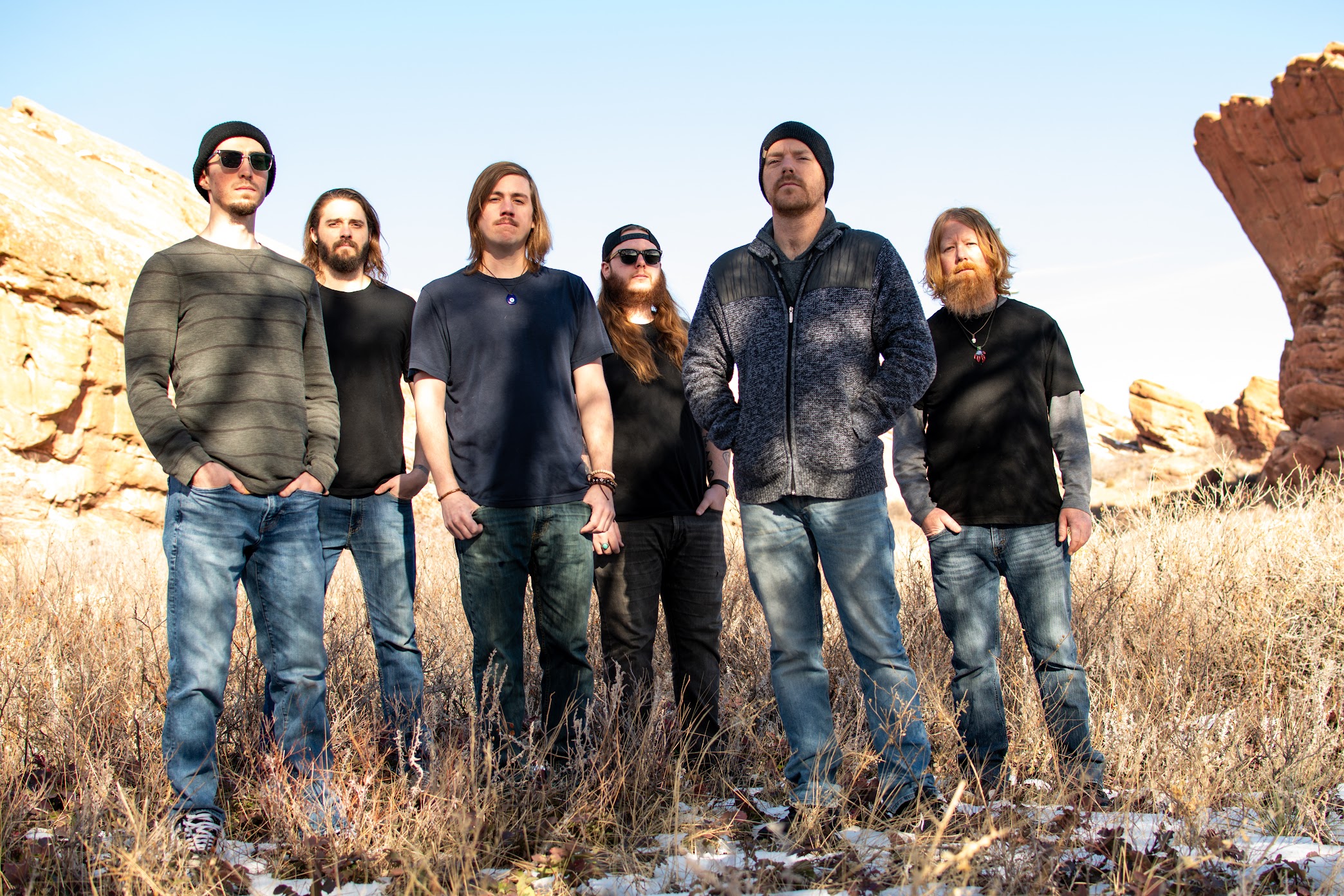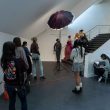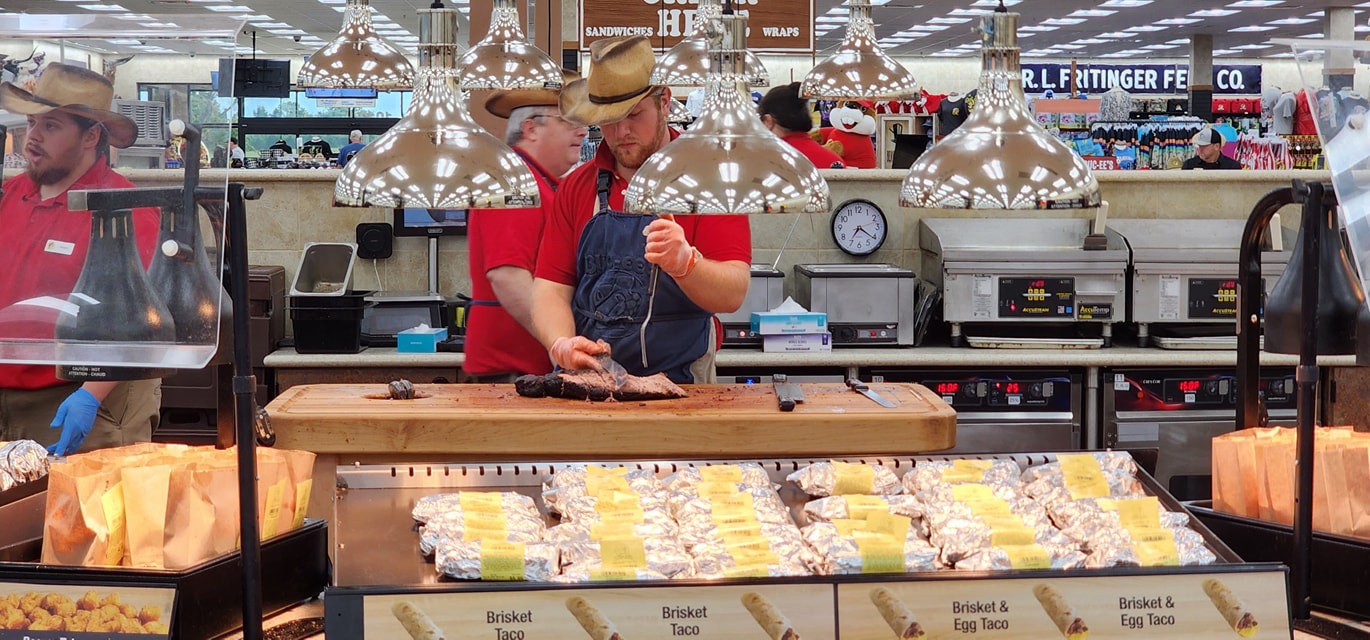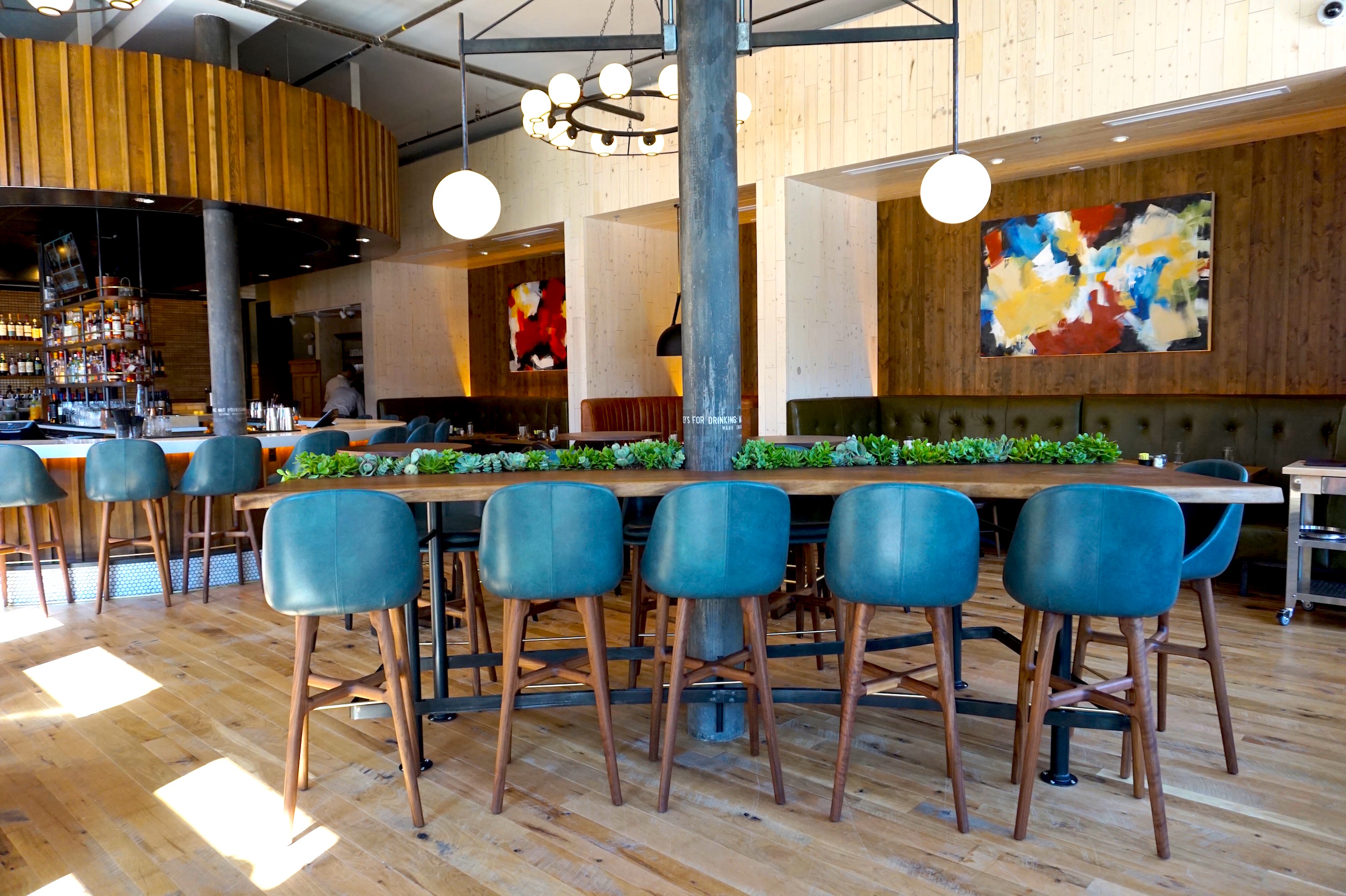This month, Sage Restaurant Group opened its fourth outpost of Urban Farmer — a modern steakhouse already in Portland, Cleveland and Philidelphia — in The Oxford Hotel in LoDo. Sage adds Urban Farmer to its already diverse array of Denver restaurants and bars across the city like Departure, Kachina, Poka Lola, The Corner Office and the newly acquired Cruise Room.
Urban Farmer got its start in 2008 in Portland, and since opening, the team has stayed true to its mission — to celebrate farmers and food purveyors with each plate they serve.
Executive chef Chris Starkus — who joins Urban Farmer Denver after eight years at the Portland location — spent months before opening the restaurant developing relationships with local food purveyors across the state with Sage Restaurant Group co-founder Peter Karpinski.
“We have formed long-term partnerships with local farms, ranches and fisheries over the last year to capture the true essence of Colorado,” Karpinski said. “We’re thrilled to bring this concept to our hometown and hope to redefine the traditional steakhouse dining experience for Denverites.”
We joined Starkus for a tour of his new playground to see this mission in action.
The Space
The restaurant inhabits a 125-year-old space inside The Oxford Hotel, but Karpinski tapped local design firms and art curators — Xan Creative and NINE dot ARTS — to transform the space into a mid-20th-century-meets-western lounge. Between the two large dining rooms, cocktail and charcuterie bar, lounge seating, two private dining rooms and outdoor patio on Wazee Street, the restaurant can seat 275 guests.
Many historic features of the space were left intact but slighting updated — the ceiling, the doors with updated hardwood and the wood paneling on the back dining room walls, which took almost two months to refinish. The added interior touches are what could only be described as an upscale, masculine farmhouse — filled with earth and jewel-toned pops of rich dyed-leather, walnut dining chairs and textured plaid on the walls.
The Back-of-House
While the interior of the restaurant is beautiful, the intrigue is truly back-of-house. Watching Starkus excitedly roam the rooms of his playground — including a pastry shop, butcher shop, dry-aging room, prep room, banquet room, ice room and more — was inspiring.
The roof, though, is likely Starkus’ sanctuary. After riding a service elevator, going through the attic and up the stairs, you reach the top of the building overlooking Union Station. There, you’ll find Starkus’ hives for bee keeping — a hobby he’s carried from his home and Urban Farmer Portland. Between the three, he’s raising about 60,000 bees. The team harvests the honey to drizzled into dressings, bread, butter, cheese plates and more.
The remaining back-of-house rooms are full of people — at most times of day, Urban Farmer has about 25 people working in various parts of the kitchen. It houses many aspects one would expect in a meat-centered restaurant like a dry-aging room and butcher shop that allows for full nose-to-tail consumption of animals. The staff even uses the beef fat to make tallow candles for the tables. But, other rooms are more unexpected. The ice room, for instance, has machines that produce 300-pound blocks of ice that can be used for creative cocktails in Urban Farmer and beyond from Sage Beverage Director Brandon Wise.
In addition to tapping into local farmers, Urban Farmer also has a small production of produce — like the Hazel Dell mushroom terrarium on the ground floor and organic Seeds Trust garden along the walls of the back dining room and patio.
The Food & Drinks
After touring the kitchen of Urban Farmer, tasting the application of it is that much more enjoyable.
“I’m mostly just excited to speak to the whole classic farm to table and ranch to table movement through all three meal periods,” Starkus explained while cutting herbs from the window garden to garnish the McFarland Springs Rainbow Trout ($34) that he served us. Set with heirloom carrot, cipollini onion and salsa verde, it was light, refreshing and unexpected from a restaurant that hangs its hat on steak dishes.
“I love taking the agricultural geography of the state and blending it together in our menu,” he said. “The collaborative spirit of Denver is really strong, and we want to highlight that making things in-house but also working with as many Denver producers as possible.”
Half of the menu is exclusive to the Denver location, and not all of it is meat-driven. Urban Farmer also has a variety of seasonal vegetarian options, soups, salads and more. Our favorite is the Petite Iceberg ($14) — a creative take on a classic wedge salad with blue goat cheese, bacon jam and green peppercorn.
Urban Farmer also serves daily for breakfast, lunch, dinner and weekend brunch — and don’t miss the house-made English muffins. It’s also behind the new small bites at The Cruise Room next door.
There’s no shortage of beverage options, with a 150-bottle wine list — with a concentration on the Pacific Northwest — beer and creative cocktails fueled by that ice laboratory hiding below the restaurant. Our favorite — the Farmer #4 ($12) — is the most popular drink served, with Tito’s vodka, St. Germain elderflower liqueur, grapefruit, lime, grapefruit ice and bright red Peychaud’s bitters dripped onto the surface. It’s so popular that they make about 60 of the grapefruit ice cubes daily.
Urban Farmer is located at 1659 Wazee Street, Denver. It is open Monday through Thursday, 7 a.m. to 11 p.m.; Friday, 7 a.m. to 1 a.m. and Saturday, 7 a.m. to 12 a.m.
All photography by Alexandra Palmerton.





